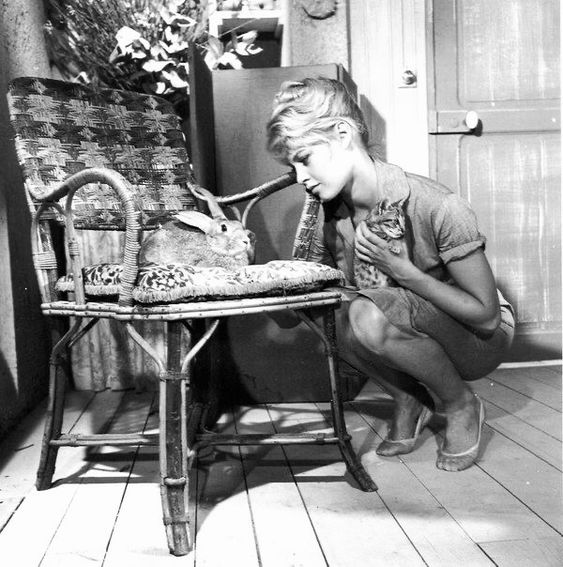
Neptune in the 7th House: A Tidal Wave of Fantasies in Relationships
 The 7th house in astrology, commonly known as the “house of marriage,” unveils valuable insights into an individual’s relationships and the specific type of partner they naturally attract into their lives. This house is associated with partnerships, marriage, and one-on-one connections. While it is commonly perceived as a representation of our interactions with others, it also relates to a dimension of our individuality.
The 7th house in astrology, commonly known as the “house of marriage,” unveils valuable insights into an individual’s relationships and the specific type of partner they naturally attract into their lives. This house is associated with partnerships, marriage, and one-on-one connections. While it is commonly perceived as a representation of our interactions with others, it also relates to a dimension of our individuality.
Astrologically, the positions of planets within the 7th house reveal much about our relationship patterns and preferences. It can offer insights into our desires, needs, and expectations in all of our connections to others. However, it is important to remember that this house should not be interpreted solely as a window into our relationships with others, but also as a mirror reflecting our inner selves.
The hours we spend with our partners and the significant people we choose to share our lives with are deeply meaningful and often formative periods. The experiences we have in these relationships can profoundly shape our growth, understanding of ourselves, and our emotional landscape. As we engage in partnerships, we may project various aspects of our personality onto others, both positive and negative, before fully recognizing that these qualities originate from within ourselves.
When Neptune is positioned in the 7th house of an individual’s horoscope, it influences their relationships and the way they perceive their partners. Neptune, as a planet associated with dreams, illusions, and spirituality, imbues this house with a touch of mysticism and imagination. Relationships, in this light, become a realm of exploration and development, where hidden facets of the self come to the surface. It often leads to a fascinating dynamic where the other person in the relationship becomes a vessel for the individual’s exploration of their own subconscious and spiritual realms.
According to the analytical psychologist Carl Jung, such imaginings are instances of “imaginative relationships,” representing Neptune’s essential role in the human psyche. One of the potential challenges for the individuals with this placement is the tendency to romanticize, idealize, and fantasize about one’s partner. The influence of Neptune can create an enchanting aura around the relationship, making it easy for individuals to see their partners through rose-colored glasses.
This romanticizing may lead to unrealistic expectations and may obscure the reality of the person behind the idealized image. Individuals born with this astrological alignment should be cautious about allowing just anyone into their hearts. It’s possible that they have a tendency to romanticise their ideal mate rather than accepting them for who they really are in a relationship. Staying grounded and resisting Neptune’s seductive pull is essential for individuals as they strive for a more realistic understanding of relationships.
The fascination with the fanciful that Neptune brings to the 7th house can lead them to idealize relationships that are impossible to sustain. Drawn by others who are out of reach, or who aren’t available, or caught up in make-believe relationships that have no basis in reality. This could lead to disappointment and a cycle of unfulfilling relationships.
Astrologers often note that such individuals have a permanent tendency to fantasize about being in a perfect and blissful relationship with another person. This inclination can stem from early idealistic views of relationships developed during childhood, which may have been shattered by the harsh realities of adulthood. As children, many of us may have grown up with fairy tales and stories that portrayed idealized versions of love and relationships. These fantasies can linger into adulthood and influence the way we perceive romantic partnerships.
With Neptune in the 7th house, this influence can be particularly strong, leading these individuals to seek out a partner who fulfills their fantasies of a perfect and ideal love. For this reason, they might find themselves waiting for someone to “save” them, seeking out vague and intangible concepts like a deep spiritual connection or unconditional love. One possible desire is for a soul mate who can provide for all their emotional requirements and make their partnership into a spiritual paradise.
However, issues can arise when these individuals become so convinced of the existence of unconditional love that they become blind to their partner’s flaws and the realities of the relationship. This refusal to let go of the dream, despite mounting evidence to the contrary, can lead to a lack of healthy boundaries and a willingness to overlook serious issues in the relationship.
In some cases, the idea of a “soulmate” or “twin flame” may come into play. Individuals with this placement might believe they have found a partner with whom they share a deep spiritual connection and a sense that they are “the one” destined for them. Neptune’s influence can create a sense of psychic link or spiritual bond with a significant other, intensifying the romantic idealism and feelings of destiny.
Even true soul mates might find themselves arguing over who does the washing up, or the proper way the toothbrush should be squeezed. Howard Sasportas
This placement of Neptune can also give rise to the victim/savior archetype in romantic relationships. The individual with this may have an inclination to take on the role of a savior or protector, feeling a compelling need to rescue others from their perceived troubles or vulnerabilities. This pattern may emerge from a deep-seated belief that they have the power to shield others from danger or emotional pain, often at the expense of their own well-being.
The “wounded birds” syndrome is a common manifestation of this archetype. Individuals with this astrological placing may find themselves drawn to partners who have experienced trauma or struggle with challenges such as alcoholism, drug abuse, or emotional instability. The potential partners may appear weak, dependent, or helpless, and the person with Neptune in the 7th house may view them as in need of healing and support.
Approaching the relationship as a project, the individual believes they possess the answers to their partner’s problems, which have hindered them from experiencing a deep sense of belonging and acceptance. One feels compelled to provide guidance and care in the hopes that their partner may find healing and wholeness in the connection. However, this dynamic can be problematic and lead to codependent tendencies.
The person may become overly enmeshed in their partner’s struggles and lose sight of healthy boundaries. Those with Neptune in this position may neglect their own needs and well-being, focusing excessively on the role of the savior, which can ultimately lead to emotional burnout and disappointment when their efforts do not yield the desired outcomes.
You look for a sensitivity and idealism in others – or one other in particular. You project on to your partner all those things that you long for in a mate. This can too easily give rise to your having great love affairs that are followed by equally great disappointments. Furthermore your partner becomes like a drug to you, for you are addicted to them and suffer very painful withdrawal symptoms when your ‘supply’ is threatened or terminated. It is of vital importance that you find some kind of ‘cure’ – otherwise you could be doomed to be a ‘social junkie.’ That cure is in your realization that you yourself are carrying around within your psyche that ideal human being. The people that you long for or are fatally attracted to seem to be supremely gifted and so you worship them, or they are in some way afflicted and seem to need your help. In either case, you can often wind up feeling the victim in the relationship. The more you find the artist, healer, musician, visionary or transcendental in yourself, then the more you will be able to relate to your partner as an ordinary human being with ordinary talents and failures. Lyn Birkbeck
Relationships formed by individuals with this placement can be characterized by a strong sense of guilt that binds them together. This guilt might stem from unresolved emotional issues or a feeling of responsibility for the other person’s well-being, leading to a co-dependent and potentially oppressive dynamic. In some cases, one partner in the relationship may adopt a superiority complex, viewing themselves as higher or more capable than the other. This superiority complex can act as a defense mechanism to avoid facing their own areas of weakness, helplessness, and need. This sense of superiority can be exploited to manipulate the other person or to avoid facing one’s own weaknesses and vulnerabilities.
As the weaker partner begins to grow and develop, it can create difficulties in the relationship. The partner who had been in the dominant role might feel threatened or insecure as their own hurts, fears, and insecurities about their weakness resurface. This can lead to projections, where the individual projects their own unresolved issues onto their partner, which further complicates the relationship dynamic.
The person with this placement may find it challenging to see their partner clearly, as they might view them through an idealized lens or be blind to potential red flags. This lack of objectivity can leave them vulnerable to emotional manipulation and deception. As a result, feelings of disillusionment, sadness, and disappointment can arise within these relationships. The reality may not match the idealized fantasy that Neptune creates, leading to a sense of loss or sadness when the truth becomes apparent.
Neptune’s influence can be likened to “drowning” in the romantic experience. When in love, individuals with Neptune in the 7th house may see their partner without flaws, idealizing their partner and the relationship. This idealization can be addictive, akin to a drug, making them willing to give up everything else for the sake of being with their special someone.
While Neptune partnerships can be deeply romantic and spiritually intense, they also come with risks. The tendency to lose oneself in the relationship and prioritize the partner above all else can lead to a loss of individuality and independence. It is important for individuals with Neptune in the 7th house to find a balance between the romantic idealism and the practical realities of the relationship.
 The influence of Neptune in the 7th house can extend beyond individual partnerships. It can also manifest in a focus on public relations and a heightened sensitivity to the feelings of others. As a result, individuals with this placement may be drawn to roles that involve helping others, such as counselors, healers, or social workers. They may possess a natural talent for understanding human psychology and have a unique ability to bypass psychological defenses, making them stand out in these professions.
The influence of Neptune in the 7th house can extend beyond individual partnerships. It can also manifest in a focus on public relations and a heightened sensitivity to the feelings of others. As a result, individuals with this placement may be drawn to roles that involve helping others, such as counselors, healers, or social workers. They may possess a natural talent for understanding human psychology and have a unique ability to bypass psychological defenses, making them stand out in these professions.
People that have Neptune in the 7th house are highly empathetic, which is one of their many qualities. Due to a sincere desire to help and encourage people from all walks of life, depth of understanding and empathy, they are able to guide the lost and confused with compassion and wisdom. One of the key effects of this placement is that the person’s inner circle may comprise individuals with similar religious or spiritual beliefs or those who share a comparable level of psychic sensitivity. Neptune’s influence fosters a sense of spiritual connection and intuitive understanding among these individuals, creating a deep bond based on shared beliefs and heightened sensitivity to subtle energies.
While caution is often emphasized in many interpretations, acknowledging Neptune’s potential pitfalls in the realm of relationships, it’s equally important to recognize the positive and enchanting aspects that this placement can bring to one’s love life. One of the most remarkable qualities of individuals with Neptune in the 7th house is their capacity to experience love in a profoundly beautiful and magical way.
These individuals often possess a heightened sensitivity to their partners’ needs and emotions, creating an atmosphere of compassion and understanding in their relationships. Their romantic connections are infused with a sensitive and dreamy quality that can make love feel like a transcendent experience. These individuals have a natural inclination towards being compassionate and nurturing partners. They are attuned to the feelings of those they love and may go to great lengths to support and care for their significant others. This facilitates the creation of a relationship marked by a shared understanding of a partner, almost on a psychic level, given Neptune’s boundless nature. Furthermore, it establishes emotional intimacy in the realm of relating and an unparalleled sense of closeness.
However, the potential challenges arise when Neptune’s influence takes a darker turn. If unchecked, Neptune can bring about a tendency for these individuals to get lost in fantasies or illusions about their partners. There may be a strong desire to save or rescue their loved ones, and this can lead to a sense of disillusionment if the reality of the relationship doesn’t align with their idealized visions. Additionally, the need to have someone to care for deeply may result in the neglect of their own needs, creating an imbalance in the relationship. Over time, this can lead to feelings of disappointment and confusion, as the boundaries between self and other become blurred.
Developing a realistic understanding of their partners and themselves, as well as setting clear boundaries, can help mitigate the potential challenges associated with Neptune’s influence and allow the positive qualities of this placement to shine through in their relationships.



















 Pluto in the 12th House
Pluto in the 12th House
 Sun Square Pluto Synastry: You’ve Got That Power Over Me
Sun Square Pluto Synastry: You’ve Got That Power Over Me
 Venus-Pluto Synastry: A Love So Powerful That It Might Just Kill Them
Venus-Pluto Synastry: A Love So Powerful That It Might Just Kill Them
 Moon Conjunct Pluto Natal Aspect: Emotional X-Ray Vision – Seeing Through Souls Since Birth
Moon Conjunct Pluto Natal Aspect: Emotional X-Ray Vision – Seeing Through Souls Since Birth
 Mars in Aquarius: Sex drive
Mars in Aquarius: Sex drive
 Venus Trine Pluto: Dark Desires
Venus Trine Pluto: Dark Desires
 Moon Conjunct Pluto Synastry
Moon Conjunct Pluto Synastry
 The Cost of Living Through the Eyes of Aquarius
The Cost of Living Through the Eyes of Aquarius
 Mars Conjunct Pluto Synastry
Mars Conjunct Pluto Synastry
 Uranus Transits 8th the House: Rebirth from Chaos
Uranus Transits 8th the House: Rebirth from Chaos
 The Differences Between Synastry and Composite Charts!
The Differences Between Synastry and Composite Charts!
 Moon Square Saturn Natal Aspect
Moon Square Saturn Natal Aspect
 Uranus Transits the 4th House: The Chaotic Path to Personal Inner Growth
Uranus Transits the 4th House: The Chaotic Path to Personal Inner Growth
 Mars Trine Pluto: The Power Within
Mars Trine Pluto: The Power Within
 Grand Fire Trine: From Adventurous Extroverts to Visionary Introverts
Grand Fire Trine: From Adventurous Extroverts to Visionary Introverts
 Moon Trine Mars Natal: Strength and Vulnerability
Moon Trine Mars Natal: Strength and Vulnerability
 Mars Trine Pluto Natal Apsect
Mars Trine Pluto Natal Apsect
 Venus Trine Mars Synastry
Venus Trine Mars Synastry
 Mars-Pluto Synastry: Something Quite Dark and Dangerous
Mars-Pluto Synastry: Something Quite Dark and Dangerous
 Love’s Mirage: The Sun- Neptune Synastry Influence
Love’s Mirage: The Sun- Neptune Synastry Influence